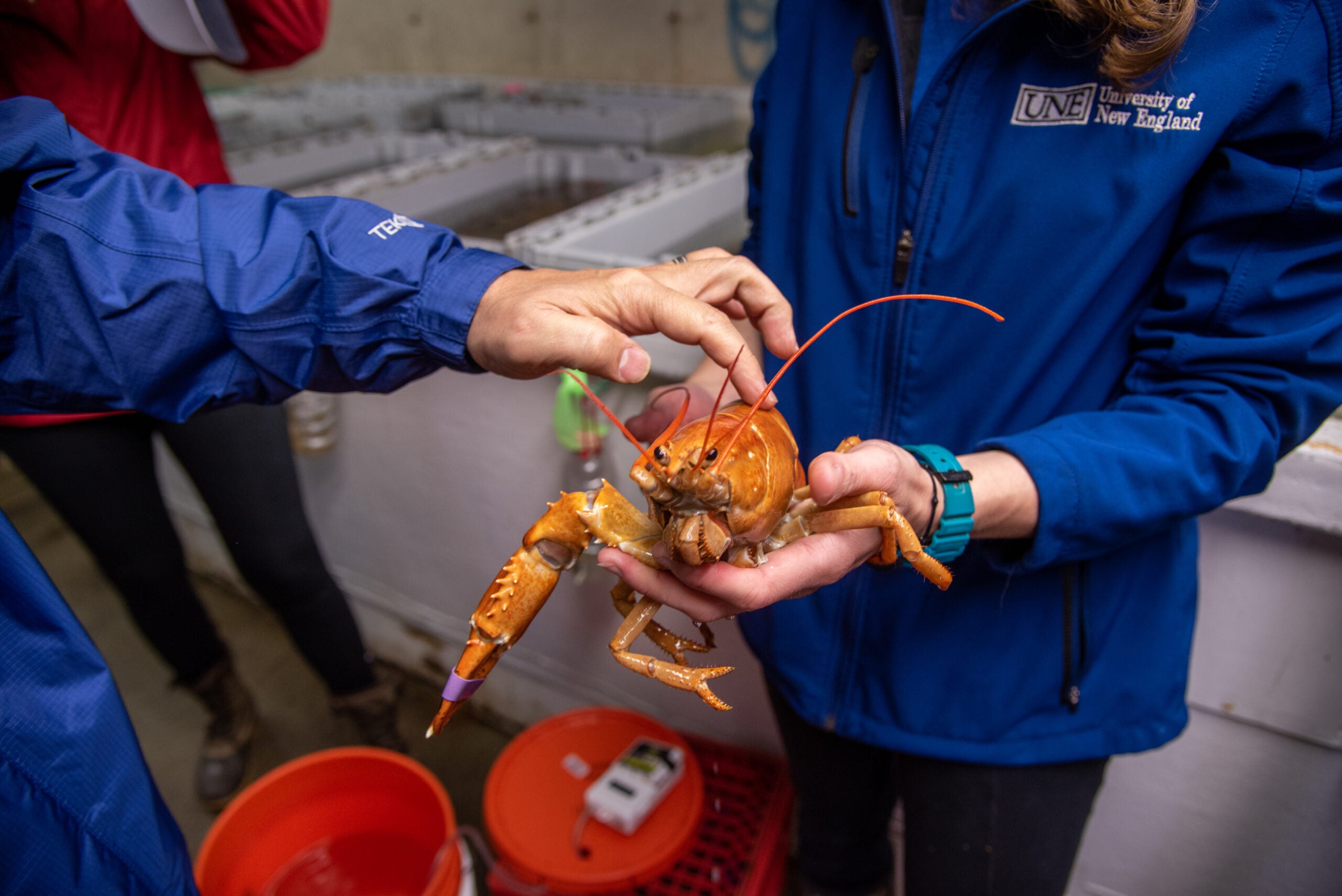Native
“It was an thrilling second for me, particularly as a result of I like seeing uncommon creatures like that.”
What a catch!
A crew of lobstermen pulled in an extremely uncommon orange lobster in Maine’s Casco Bay Friday morning.
“We had been fairly excited after we noticed it,” Mandy Cyr, a member of the three-person crew instructed Boston.com.
“It was an thrilling second for me, particularly as a result of I like seeing uncommon creatures like that,” she added.
The percentages of catching an orange lobster are about one in 30 million, in comparison with the one-in-two million odds of catching a blue lobster, in response to the College of New England.
Capt. Gregg Turner, who has been fishing since he was 5 years outdated, stated he has solely seen one different orange lobster in over 50 years of fishing. The captain stated he has discovered neon and translucent lobsters prior to now, however was excited to entice such a uncommon catch.
“This one’s lots completely different, you don’t see these fairly often,” he stated.
The crew went on to donate the lobster to the Arthur P. Girard Marine Science Heart at UNE. And in response to Charles Tilburg, tutorial director of the College of Marine and Environmental Packages and director of the marine science middle, college students could have the chance to check the genetic mutation that provides the lobster its orange hue.

“They’re so uncommon due to the place the coloration comes from,” Tilburg stated. “It’s attributable to the interaction of a number of completely different proteins which might be coded for the respective genes and lack of a sure gene, and that individual protein, results in completely different colours. And these are actually, actually uncommon. So whenever you get one among these lobsters, you’ve an opportunity to take a look at mainly a genetic mutation, and/or environmental components that may have an effect on the colour of the lobster.”
The orange lobster, which can be named by college students via a vote (Tilburg is pulling for the identify “Tangerine,”) can be lacking a claw. Generally, Tilburg stated, claws can develop again a distinct shade than the remainder of the lobster — one other side he hopes his college students will be capable of study.
“I’m significantly concerned with is that claw going to be orange or is that going to be a distinct shade as a result of we’re in a distinct setting now?” Tilburg stated. “So, it’s going to be thrilling to see. It’s going to be thrilling to share with our college students and share with the general public because the lobster ages, matures, and grows again her claw.”
Publication Signup
Keep updated on all the newest information from Boston.com